Coal Miner Day is a professional holiday for the underground workers which dates back to the Soviet era. After the USSR collapsed the holiday is still celebrated on the last Sunday in August in Russia, Ukraine, Belarus, Estonia, Uzbekistan and Kazakhstan.
The life and work of Donbass coal miners – in our photo gallery.
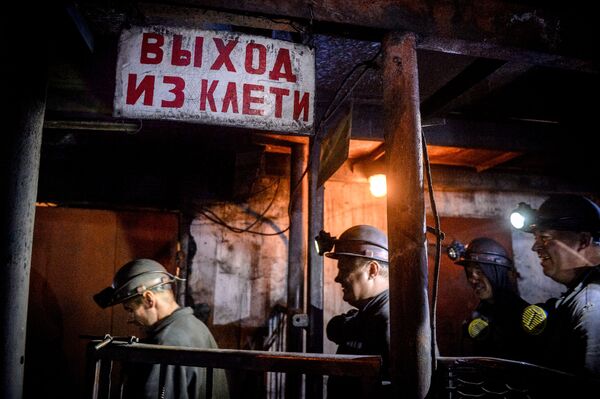
1/14
© Sputnik / Alexei Kudenko
The Shakhterskay-Glubokaya (Russian "Deep Coal Mine") is one of the newest and most powerful mines in the eastern part of Donbass. It was established in 1986. During the Ukrainian coup, it was saved from devastation and resumed operations afterwards. Miners had to conduct repair works during shelling.
Above: Miners inside the Glubokaya mine.
Above: Miners inside the Glubokaya mine.
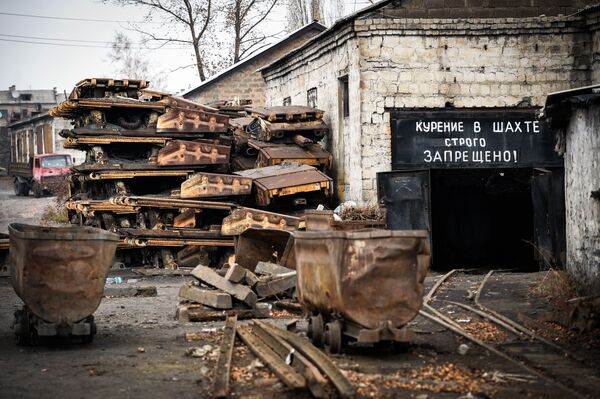
2/14
© Sputnik / Alexei Kudenko
In August 2014, the Ilovaiskaya mine was left without power due to intensive combat actions. Pumps stopped, and the mine was flooded. In November, repair works began, and in December coal-mining resumed.
Above: At the Ilovaiskaya mine.
Above: At the Ilovaiskaya mine.
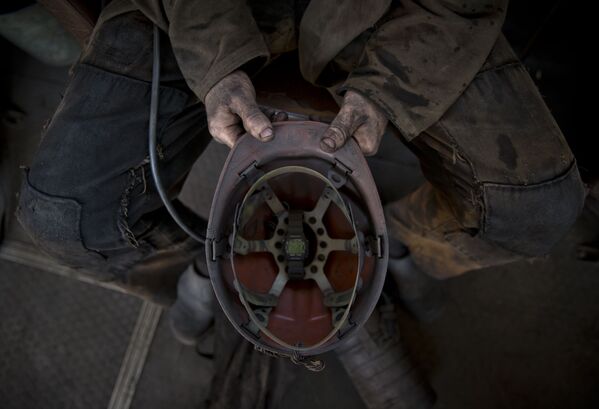
3/14
© AP Photo / Vadim Ghirda
In November 2014, 11 major mines stopped working due to shelling in the self-proclaimed Donetsk People’s Republic.
Above: A Ukrainian coal miner holds his helmet after finishing his shift at a coal mine outside Donetsk, Ukraine.
Above: A Ukrainian coal miner holds his helmet after finishing his shift at a coal mine outside Donetsk, Ukraine.
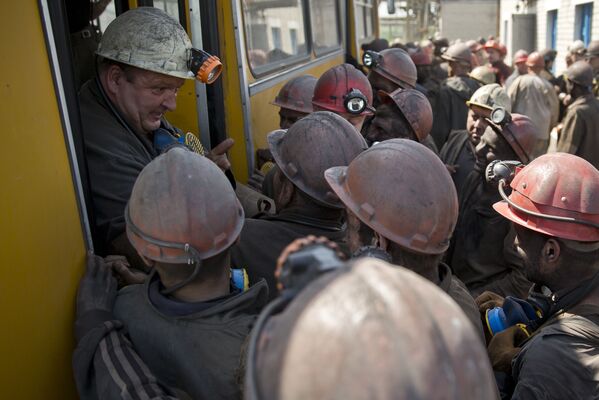
4/14
© AP Photo / Vadim Ghirda
In June 2015, the mines of the self-proclaimed Donetsk People’s Republic produced over 766,000 tons of coal, 12 percent higher than planned.
Above: Ukrainian coal miners block a colleague from the next shift from getting off a bus at a coal mine outside Donetsk, Ukraine.
Above: Ukrainian coal miners block a colleague from the next shift from getting off a bus at a coal mine outside Donetsk, Ukraine.
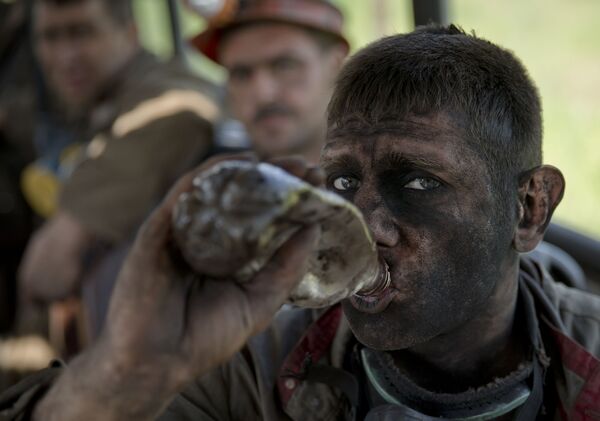
5/14
© AP Photo / Vadim Ghirda
As of late June 2015, the mining companies Donbass, Makeevugol and Shahkterskantatsit were leaders in coal production.
Above: A Ukrainian coal miner drinks water after finishing his shift at a coal mine outside Donetsk, Ukraine.
Above: A Ukrainian coal miner drinks water after finishing his shift at a coal mine outside Donetsk, Ukraine.
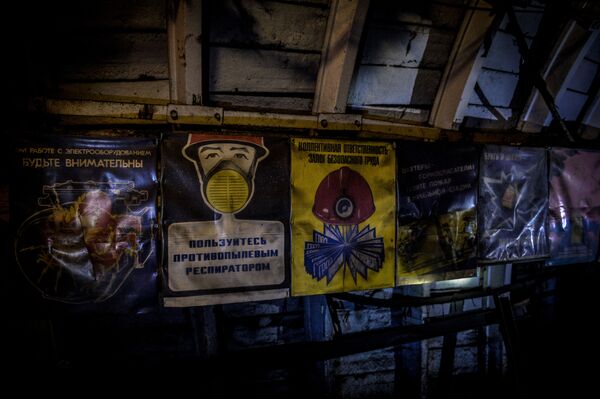
6/14
© Sputnik / Alexei Kudenko
The Glubokaya mine (Russian "Deep") is one of the deepest coal mines in the world with a depth of nearly 1.5 kilometers.
Above: Warning signs inside the Glubokaya mine.
Above: Warning signs inside the Glubokaya mine.
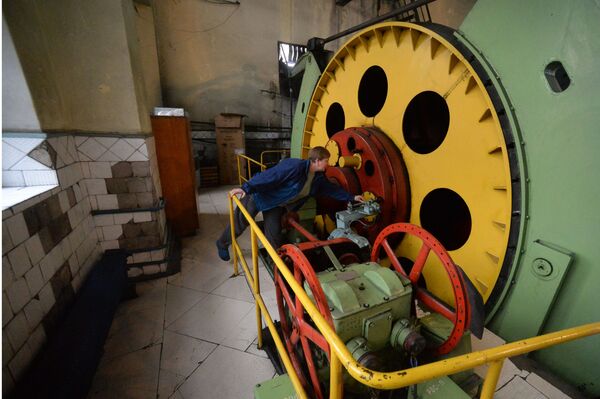
7/14
© Sputnik / Mikhail Voskresenskiy
In July, Kiev blocked wood supplies to the self-proclaimed Donetsk People’s Republic. Some mines suspended operations.
Above: An elevator machine at the Tkachuk mine in the town of Khartsyzsk, Donbass.
Above: An elevator machine at the Tkachuk mine in the town of Khartsyzsk, Donbass.
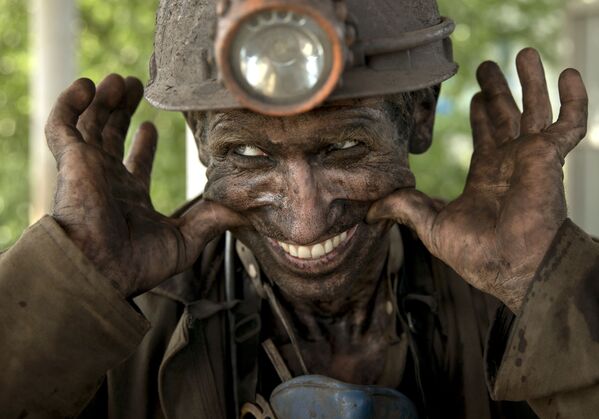
8/14
© AP Photo / Vadim Ghirda
Ukraine's coal reserves are located in the Donets Basin (easternmost part of the country) and in the northwestern area between the cities of Lviv and Volodymyr-Volynskyi.
Above: A Ukrainian coal miner smiles, after finishing his shift at a coal mine outside Donetsk, Ukraine.
Above: A Ukrainian coal miner smiles, after finishing his shift at a coal mine outside Donetsk, Ukraine.
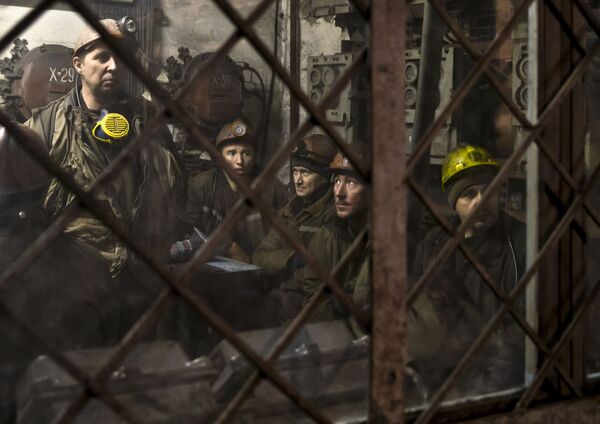
9/14
© AP Photo / Vadim Ghirda
Coal mining is one of the biggest industries in Eastern Ukraine. The country's coal industry employs about 500,000 people.
Above: Ukrainian coal miners wait in a room before going underground at the Zasyadko mine in Donetsk, Ukraine.
Above: Ukrainian coal miners wait in a room before going underground at the Zasyadko mine in Donetsk, Ukraine.
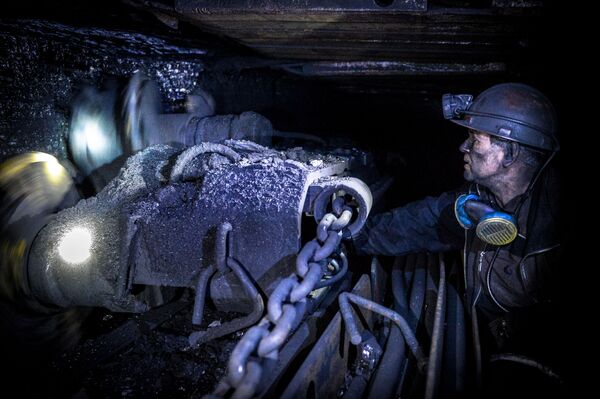
10/14
© Sputnik / Alexei Kudenko
The Glubokaya mine has huge production reserves – 130 million tons of coal. With an estimated capacity of one million tons a year, the mine could operate for 130 years.
Above: Coal mining at the Glubokaya mine in Shakhtyorsk.
Above: Coal mining at the Glubokaya mine in Shakhtyorsk.
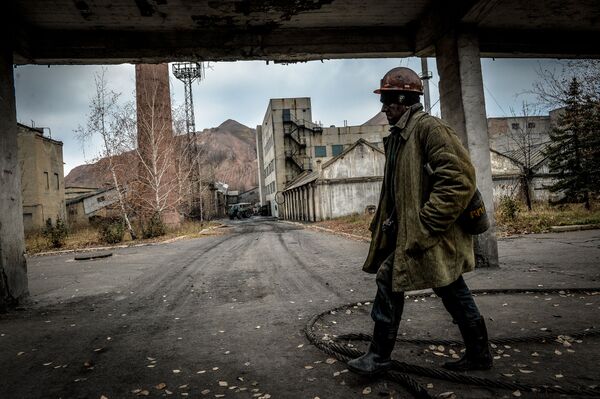
11/14
© Sputnik / Alexei Kudenko
The Donbass coal mines are one of the most hazardous in the world due to enormous working depths as well as due to high levels of methane explosion and rock burst dangers.
Above: A miner on his way home after their shift at the Chelyuskintsev mine in Donetsk.
Above: A miner on his way home after their shift at the Chelyuskintsev mine in Donetsk.
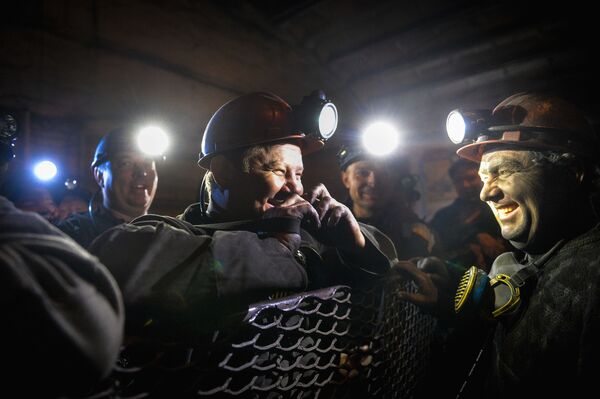
12/14
© Sputnik / Alexei Kudenko
Before Kiev launched a military offensive in Donbass, the Glubokaya mine employed 2,700 people.
Above: Miners inside the Glubokaya mine.
Above: Miners inside the Glubokaya mine.
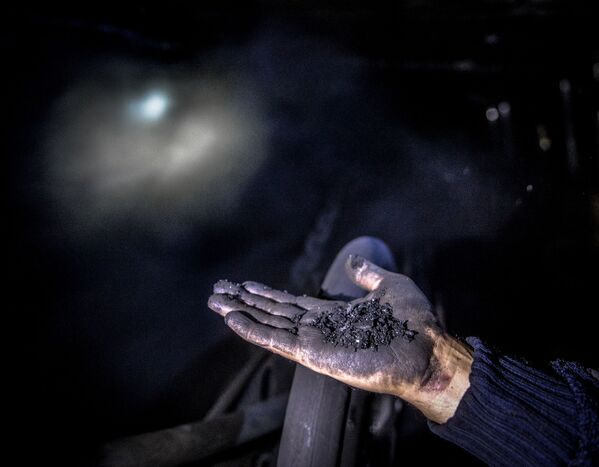
13/14
© Sputnik / Alexei Kudenko
The coal produced at the Glubokaya mine is high-quality anthracite coal.
Above: Coal mined at the Glubokaya mine in Shakhtyorsk.
Above: Coal mined at the Glubokaya mine in Shakhtyorsk.
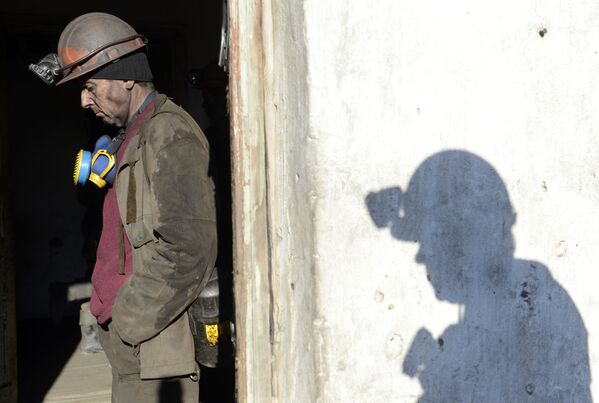
Due to the Donbass conflict, Ukraine has lost most of its mines in the region. The most profitable coal mines are currently on the territories Kiev does not control. Mines under Ukrainian control are unprofitable and are planned to be gradually shut down.
Above: A miner of the Kholodnaya Balka coal mine stands after finishing work, outside Donetsk.
Above: A miner of the Kholodnaya Balka coal mine stands after finishing work, outside Donetsk.


